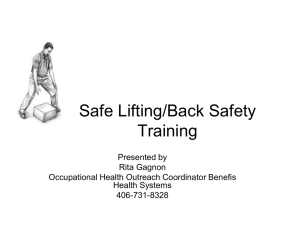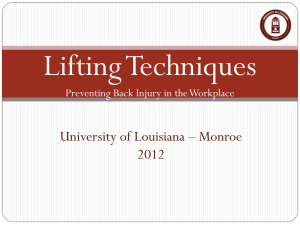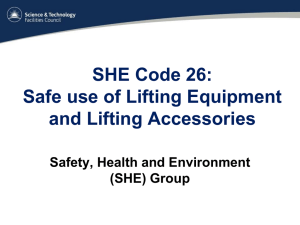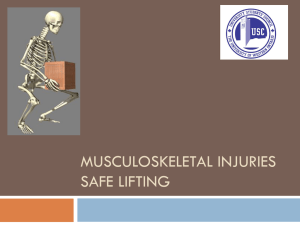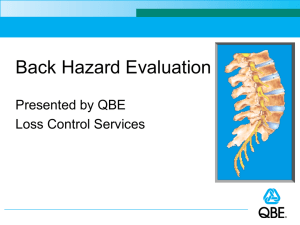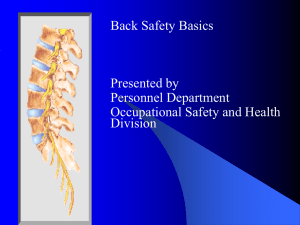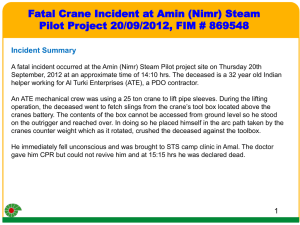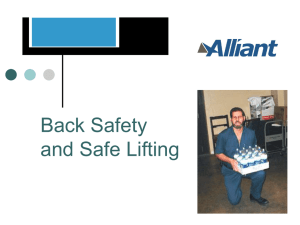Lifting and Handling Techniques
advertisement
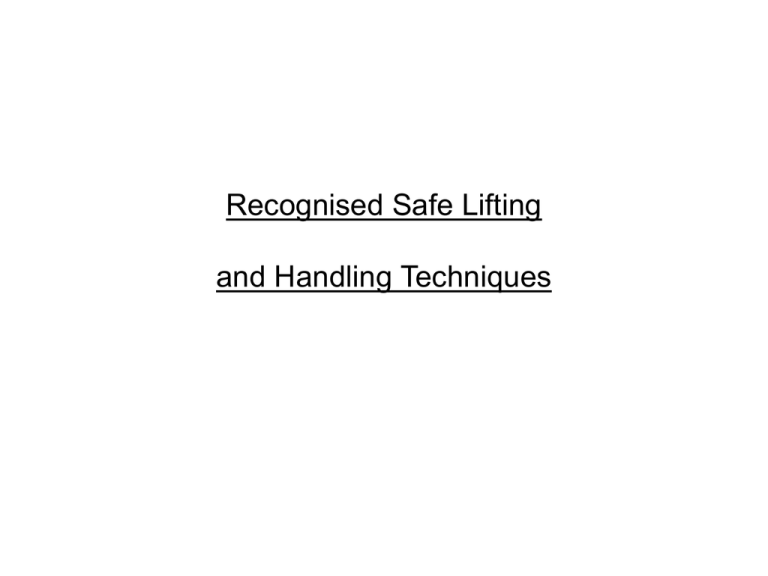
Recognised Safe Lifting and Handling Techniques Kinetic Lifting Technique for a Simple Load Kinetic Lifting Technique For Lifting a Sack From the Ground 1 2 4 3 5 Kinetic Lifting Technique for Lifting Sacks From a Truck Kinetic Lifting Technique For a Dual Person Lift from Ground Level 1 2 Kinetic Lifting Technique, Two Persons and Long Load 3 5 4 Kinetic Lifting Technique, Oil Drum Kinetic Lifting Technique. One Person, Long Load WRONG RIGHT Kinetic Lifting Technique, Sheets/Boards Kinetic Lifting Technique, 2 person Lift Sheets/Boards Kinetic Lifting Technique 2 Person Lift Kinetic Lifting Techniques Sacks Kinetic Lifting HOW NOT TO DO IT!! Timber Sleeper Snips, one person each side, 2 snips per sleeper, 4 people per sleeper Sleeper snips as above, Note: only for 8 ft sleepers, anything larger will require more automation or more people De Clipping bars Rail Tongs A Selection of Tools for Manual Handling Tasks in the Rail Environment 7 Steps to Safe Lifting - Base Movement • • • • • • 1st 2nd 3rd 4th 5th 6th • 7th Assess the load – can you lift it safely? Place your feet at ten-to-two BEND you knees Back - KEEP IT STRAIGHT & UPRIGHT Neck & head – keep your chin up. Grip – “front knee, high hand, far corner” and “back knee, low hand, near corner”. Load - hold it in close to your pelvis. • Remember – use these good principles for lifting in different situations and don’t stick blindly to rules and procedures Points to remember: • Practicing good lifting technique does not enable you to lift more than you could before. It means that, whatever your individual capabilities, your chances of injury are reduced. • Good technique is just one of a number of control measures, within the hierarchy of control, that the employer has to put in place to reduce manual handling risks; it is not a panacea. • This is about a cultural change, about not accepting practices because that’s the way they’ve always been done.

